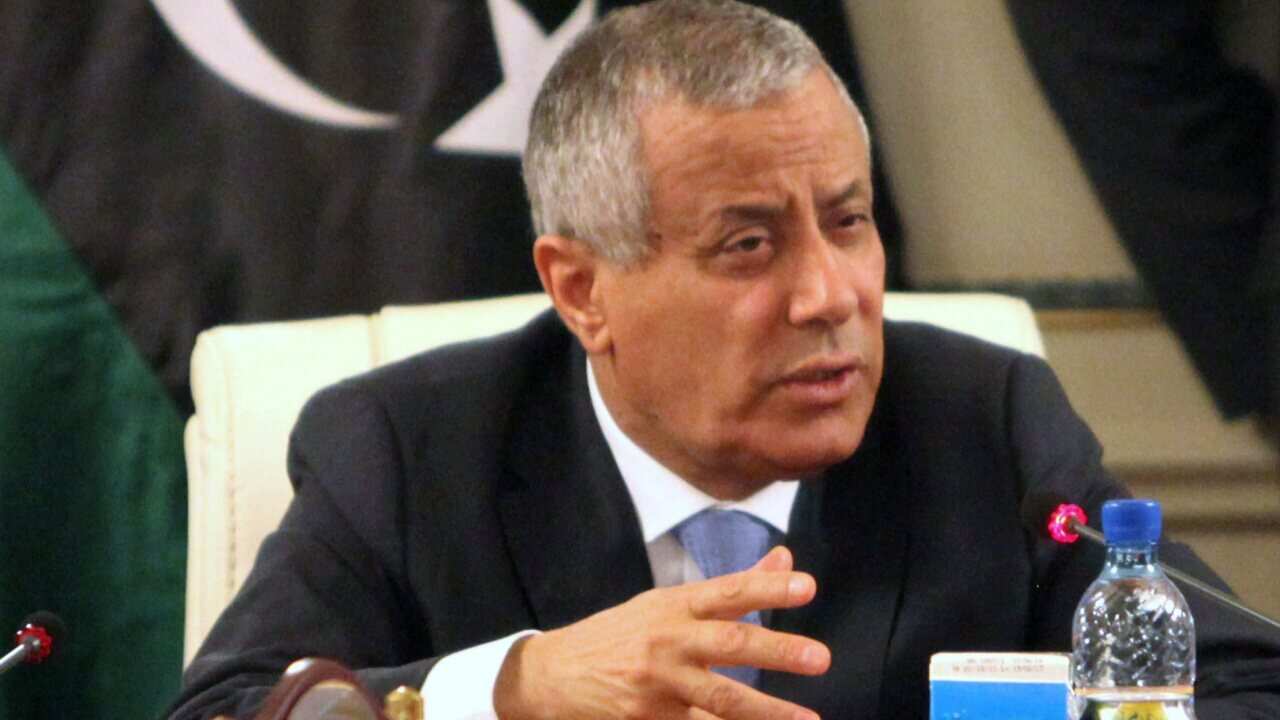(Transcript from World News Australia Radio)
The international community has condemned the abduction of Libya's Prime Minister Ali Zeidan from a Tripoli hotel by gunmen who held him for several hours.
Despite calling for calm shortly after his release, experts are questioning the stability of Mr Zeidan's government two years after the overthrow of Colonel Muammar Gaddafi.
Hannah Sinclair reports.
(Click on audio tab above to listen to item)
It's been described as one of the more chaotic events in Libya's recent political history.
Dozens of former rebel fighters seized Prime Minister Ali Zeidan from a Tripoli hotel before dawn on Thursday, holding him for several hours at an unconfirmed location.
Returning to government headquarters in an armoured vehicle hours later, Mr Zeidan told a televised cabinet meeting a rational response was required.
"Translated to English: Only with an army and a police can a state exist. I thank the army and the police. And I salute the revolutionaries who had an important role I salute them for what they did in this matter, I thank you again. I hope we resolve this matter with wisdom and reason, away from tension and escalation and in accordance with what it is needed. We need to use caution and rationality in handling this matter and achieve the goal and minimise the damage."
Mr Zeidan accuses an unidentified political party of organising his abduction as part of a plot to overthrow his government.
The incident follows a raid by United States forces last weekend that captured an alleged al-Qaeda operative, Abu Anas al-Libi.
Militia groups reject denials by Mr Zeidan that he had prior knowledge of the US operation.
Associate Professor Felix Patrikeeff is an expert in Middle East studies at the University of Adelaide.
Mr Patrikeeff says the abduction was the result of an unstable government, struggling to establish order.
"It's been two years since Gaddafi was overthrown and disposed of. And there's still no constitution. And there's really a deadlock between secular and Islamist forces in the country."
Not all observers see religious divisions as the main cause of Libya's political problems.
Adel Abdel Ghafar is a PhD scholar at the Centre for Arab and Islamic Studies at the Australian National University.
Mr Ghafar says deep-seated militia loyalties are making it hard for Prime Minister Zeidan's government to succeed.
"We have a situation now it's quite farcical that these militias refuse to disband and the military, the Ministry of Defence, actually pays some of these militias to protect parts of Libya. And these militias really have loyalties to themselves and to their cities and not to the concept of Libya. And this again is a reflection on the fragile security situation that is happening in Libya. And many of these militias contain, have lots of heavy weaponry left over, which could definitely cause problems for the future security of Libya."
Libyan authorities recently told NATO of the struggle to contain rival tribal militias and Islamist militants who control parts of the country.
NATO's Secretary General Anders Fogh Rasmussen says assistance should be provided to Libya.
"The security situation in the country is a matter of concern. In May this year the Libyan authorities forwarded a request to NATO, a request for assistance to help build a security sector, modernize a security sector. Since May we have been exploring that request and we are now considering how we could possibly assist Libya."
United States Secretary of State John Kerry has denounced the abduction of the Libyan Prime Minister and pledged continued US help to his government to ensure security.
United Nations Secretary-General Ban Ki-moon says the event shows the country's political landscape is changing.
"This very unfortunate abduction of a Prime Minister is a clear wake-up call for not only Libyan people but all other areas where they're experiencing these political transformations. The United Nations and key member states of the United Nations are very closely co-ordinating on this issue."
Associate Professor at Adelaide University Felix Patrikeeff says recent events don't bode well for the future of Ali Zeidan's government.
"They're basically trying to hold on with their fingernails onto a situation which is really quite uncertain. And I'm not sure that that's going to be resolved very quickly."
Share

